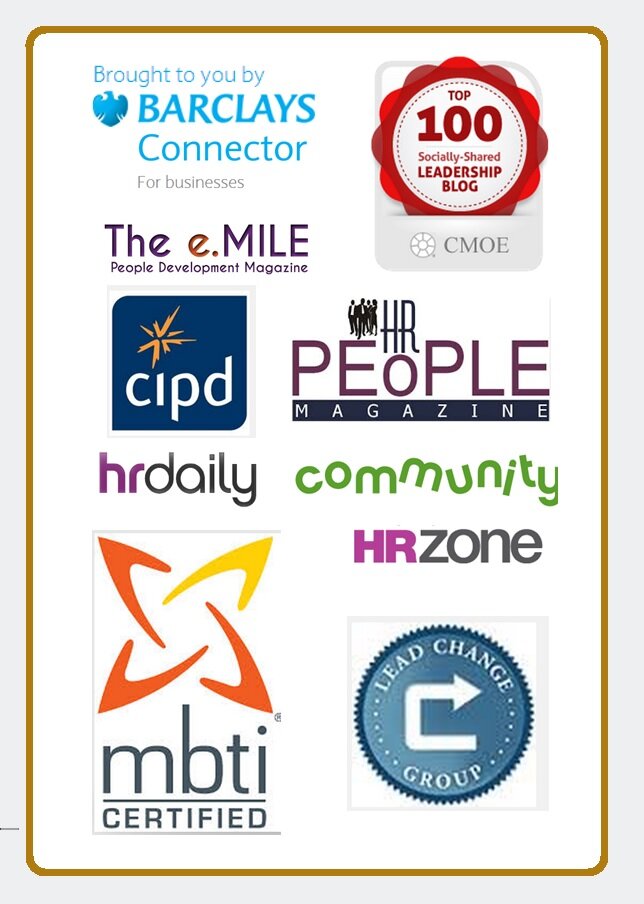People Managers need to know about Emotions!
 This is my third blog in a series of 3, where I take a look at 3 basic psychological components which great people leaders and managers know and work with to create great teams. In Part One, I outlined the importance of the power of belief and understanding how your employee’s beliefs can influence your business. In Part Two I explored why how you think is important both in relation to your team and being more effective.
This is my third blog in a series of 3, where I take a look at 3 basic psychological components which great people leaders and managers know and work with to create great teams. In Part One, I outlined the importance of the power of belief and understanding how your employee’s beliefs can influence your business. In Part Two I explored why how you think is important both in relation to your team and being more effective.
In this final part I explore emotions.
If you are a person who is not in touch with their own emotions, (and many of us aren’t and there’s nothing wrong with that), then it’s likely you haven’t even read this far. But if you have, then please bear with me.
I have seen more conflicts arise in the workplace because some people prefer to live their lives logically, thinking things through and applying facts, and some people use their feelings and how they feel as a barometer for what they like, dislike, how they relate to others and how they make decisions. The thinking and feeling divide, unless understood and appreciated can cause havoc.
Some of you may have come across the book “Men are from Mars – Women are from Venus” by John Gray. The book aims to help male/female relationships by analysing the different ways “Thinkers and Feelers” communicate”. It can seem a little stereotypical because it assumes that men are thinkers and women are feelers. And frankly that’s not always true, as you know.
Now everyone is able to use both thinking and feeling to inform decisions, we just usually have a preference one way or another. As we mature, we usually are able to learn out less preferred way, and fingers crossed end up being fairly balanced.
Just to be clear though. Our emotions are based on what we think about something. We take in information, we process it, and then we interpret the information. Depending on whether our interpretation is a negative one, or a positive one, will decide on how we feel about it. Often our processing is so instantaneous and/or unconscious that we don’t know why we feel that way.
Like it or not, many people make decisions based on how they feel about something. It is well known that great employee engagement usually goes hand in hand with people feeling good about what they do, when they feel valued and respected.
Being able to harness positive emotions and getting people involved positively is a real skill. If you are in touch with your own feelings, then this can work for and against you in the workplace. Why?
Being in touch with your own emotions means you can more easily empathise with what other people are going through. And when that works it is great. But and there’s a big “but” here. I have found that unless you have emotional intelligence then quite often you can misinterpret another’s reaction, identifying how you would feel rather than the other person.
Emotional intelligence is a great science and needs to be balanced alongside intellect and academic prowess. Wikipedia describes emotional intelligence as” the ability to identify, assess, and control the emotions of oneself, of others, and of groups”. The great thing about emotional intelligence is that if you haven’t got any, you can learn!
My first challenge as a young manager was learning how to control my own emotions. In the early years I was quite often scared to bits about having to deal with some larger than life characters I had to manage. Managing my fear was one of my first and probably my longest lessons. I am quite adept, but hey, Mr Fear still comes knocking at my door even now. But now I know him well and I know what I have to do.
My second challenge was to learn how to manage the emotions of my team. I could at times seem to quite inadvertently make people angry or upset. I was bamboozled at times by some of the reactions I had to suggestions I made or action I took.
I remember having a review with one of my team managers. I held her in high regard, she was an excellent manager. We had always gotten along well, or so I thought. I can’t remember what we were discussing, but I had challenged her about something, in what I thought was a friendly way. But her demeanour changed, she got angry then got upset. At this stage, I was completely at sea, I asked her what on earth was wrong, at which point she stormed out of the room with tears streaming down her face, stating “You don’t care about us!”
As you can see, I had to learn fast. Her reaction wasn’t about me; it was about her interpretation about what I said to her. I realised that I needed to be vigilant, and make sure I chose my words with care. I realised that she had no idea that I valued her so highly. I hadn’t ever told her. I just thought that she must know I did. Like Magic!
My emotional intelligence learning in relation to my team was a long one. I still fall into the trap at times, I crack a joke, and someone looks stonily at me, and I realise I’ve done it again.
The final stage in my learning came when I had to think about engaging large teams. Some of who I didn’t see for months at a time. Although I did try to do the best I could to have physical contact as much as I could humanly manage. Trying to encourage people to feel good, fulfil their potential and understand how much I appreciated them was more difficult.
There are some basic components to great emotional intelligence at all levels. I have practiced these in the latter years, and wished I had access to and learned them in the early years. These are:
- Accepting people completely for who they are
- Always looking for the good in people, there is always some
- Dealing with negatives in an impersonal but practical way and getting over it!
- Not judging – we all make mistakes.
- Giving people the benefit of the doubt
- Listening to what people need and wherever possible – obliging
- Reacting neutrally to anger or other attacking behaviour and helping the person to reframe it in a positive way.
- Caring about people, even when they were difficult.
What do you think? Is emotional intelligence important in the workplace? Have you had difficult situations to solve? We’d love to hear from you.
If you would like to know more, or want to claim your free consultation. Contact us by visiting peoplediscovery.co.uk .
Emotions – What People Managers Need to Know – Part Three is in audio. If you can’t see the button below visit: https://peoplediscovery.co.uk/wp-content/uploads/2012/03/Emotional-intelligence.mp3
To find out more about people managers and emotions click here


If you are a leader, you are continually developing and "Sharpening the Saw". If you lead and manage teams, then you must read about our Inspirational New Leadership Programme. Sign up now to find out more details when we launch in July 2014. There is no obligation to undertake the programme, if you sign up today, you will simply be sent more information about the programme. You can unsubscribe at any time! Click below to register for further information.



 This is my third blog in a series of 3, where I take a look at 3 basic psychological components which great people leaders and managers know and work with to create great teams. In Part One, I outlined the importance of the power of belief and understanding how your employee’s beliefs can influence your business. In Part Two I explored why how you think is important both in relation to your team and being more effective.
This is my third blog in a series of 3, where I take a look at 3 basic psychological components which great people leaders and managers know and work with to create great teams. In Part One, I outlined the importance of the power of belief and understanding how your employee’s beliefs can influence your business. In Part Two I explored why how you think is important both in relation to your team and being more effective.

